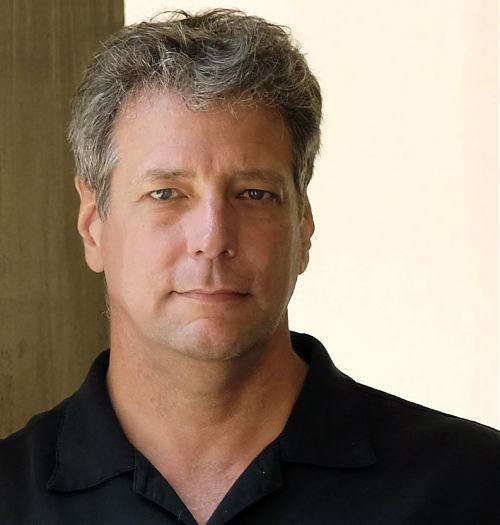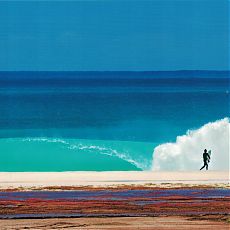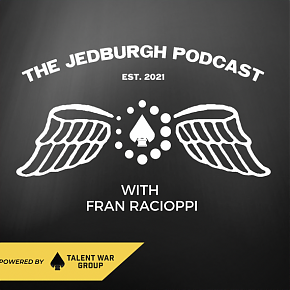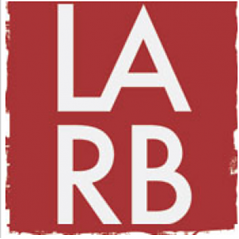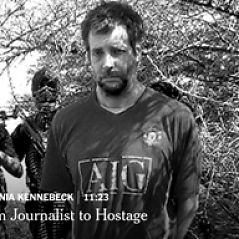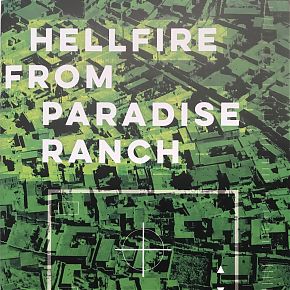By George!
A quick introduction to Henry George and his fans.
July 1998
Behind the frosted-glass office doors of an old building on New Montgomery Street in San Francisco you can find a barber shop, a bartending school, and a number of lawyers. In half of one office you’ll also find a cluttered space devoted to the Henry George School of Economics, run by a single man, David Giesen, who sits hunched in the corner like the man behind the curtain in The Wizard of Oz — eccentric, excitable, idealistic, odd — curating a legacy that reaches beyond his little room.
The fact that the School currently can’t even afford the rent on a whole office is an irony George himself would have smirked at. His ideas about land ownership made him world-famous in the late 1800s — hero to Tolstoy, George Bernard Shaw, and American labor; enemy of both robber barons and Karl Marx; and grandfather of the so-called Third Way between Marxism and capitalism that was talked about in 1989 (when the Soviet Union began to collapse), but diluted ridiculously by Bill Clinton and Tony Blair.
A few new countries are flirting with Georgism. Estonia has raised local revenue the Henry George way since 1991; the Czech Republic and Latvia are preparing tax systems based on his model now. The “Henry George way” means taxing the value of land — not the buildings, just the lots — with the underlying idea that land belongs to the people, so rent charged for its use should naturally go to a public fund.
Pure Georgism would scrap income and sales tax and run a country on so-called “socialized rent,” but no country has ever tried pure Georgism. All three Eastern European countries will go on raising most of their money through sales and income tax.
But Georgists believe their model is the key to a fair and equitable society. The San Francisco School holds Tuesday-night orientation meetings, which include games of “Anti-Monopoly” and one-man shows by Giesen, the director, who also likes to act. For the right audience Giesen will put on a brown vest and tie, glue on a beard, and play George in 1886, holding forth on his upcoming election for mayor of New York and railing against the gulf between rich and poor. “Yippee, Mr. Ivins!” Giesen-as-George hollers, after a politician warns that he won’t win the race. “I don’t desire the work of the office of the mayor of New York city, but I do wish to raise hell. This decides me. I will run!” And Giesen’s eyes go crazy and wide; he gestures like a fanatic.
Behavior like this may be why The Economist recently dismissed both George and his followers as a bunch of cranks. “Mr. George is probably the only tax theorist in history whose beliefs have become an object of cult devotion,” the magazine wrote, in a short article on Eastern Europe. But the article never let on that George was a devoted free-market man who simply used laissez-faire theory against big business. Unearned income from land, he said — through private rent and speculation — mucks up a free market and forms the crux of inequalities under capitalism.
“Rising land prices are seen as a sign of prosperity,” writes Al Date on the Henry George Institute’s web site, in an essay on the real-estate bubble in Japan, “but they gradually sow the seeds of economic reversal. Every recession in the USA has been preceded by a ‘land-boom,’ and accompanied by a ‘land-bust,’ as documented by Prof. Mason Gaffney,” another Georgist.
George himself lived in San Francisco just after the Gold Rush, and saw small patches of claim-staked mining land in Northern California pass into the hands of a few large companies, creating an immediate underclass of rent-paying gold miners who eventually gave up and drifted into the city. Wealth and poverty appeared in San Francisco, both for the first time, and George argued with traditional economists who said the poverty came naturally with the mounting population.
“There are liveried carriages on the streets of San Francisco and pleasure yachts on her bay; the class who can live sumptuously on their incomes has steadily grown,” he wrote in Progress and Poverty. “There are on every hand the most striking and conclusive evidences that the production and consumption of wealth have increased with even greater rapidity than the increase of population, and that if any class obtains it is solely because of the greater inequality of distribution.”
George also noted that California had given huge portions of its land, for free, to railroad companies, and suggested this was one reason for the inequalities. He pointed to the potato famine in Ireland, where most of the land was held by English landlords. “There is plenty of good land, but on it are only fat beasts, and sheep so clean and white that you at first think that they must be washed and combed every morning,” he wrote in Social Problems. “The ‘owners’ of this land, who live in London and Paris, many of them never having seen their estates, find cattle more profitable than men, and so the men have been driven off.” The poorest Irish land was overpopulated with peasants trying to cultivate rocky or sandy soil, and whatever food they did produce was shipped to England or sold to pay the rent. Under Georgism, the landlords would have paid Ireland for the use of its pastures, and the potato famine never would have occurred.
“People call it socializing rent, but what we do now is socialize goods and services,” explains Giesen in his tiny office. “Sales tax and income tax are nothing but socialized produce and labor.”
Giesen points out that California gets less revenue from its land than other states, partly because a law passed by Proposition 13 in 1978 froze many property values at then-current levels for tax assessment. Right now, of course, local real estate is booming, and the recent scandal over Doris Ward, the city’s Assessor-Recorder, plays right into Georgist theory. (Ward has been accused of under-assessing property values, depriving the city of almost $100 million in revenue from the rocketing market prices.) But there’s a deep difference between property tax — which lumps land with the value of a building — and a Georgist land tax, which considers only the value of a site (to keep from penalizing improvements). No one is quite sure what effect such a radical re-jiggering of the tax laws would have; never mind the fact that every level of government — federal, state, and city — has more money right now than it knows what to do with.
But Henry George might have recognized a few local conditions we take for granted. “Sixty-five percent of Oakland is owned by absentee landlords,” claims Giesen. “That is taking away a significant portion of the income of those who are working in Oakland … But just to isolate that part of the problem, without looking at what the private appropriation of land rent does to wages, is also to miss the point. It doesn’t tell the whole story of what’s causing relative poverty in Oakland.”
Hence the Henry George School. There you might learn why privately-appropriated land rent depresses wages; why labor and capital are not natural enemies; how the Depression could have been avoided; and the interesting tidbit that San Francisco Mayor Willie Brown was once a member of the School’s Board of Directors. Several California politicians flirted with Georgism in the early ’70s, and Brown even tried, twice, to push a land-value tax bill through the state’s Lower House.
“I was badly defeated with that legislation both times,” he wrote in a 1973 letter to someone associated with the School, “but I am still convinced that land-value taxation should be given a try. The experience of those countries utilizing the land-value taxation indicates that it is in fact a way of reducing slums and fostering better development, and I hope that one day we will see it tried in California, if only on a trial basis.”
Brown has since distanced himself from Georgism, though, and said there was no political will for a land tax in “the body politic. …It doesn’t carry enough weight on merit to persuade a majority of the people who need to be persuaded.”
David Giesen says the Georgists’ biggest PR problem is persuading people to distinguish between capital and land — “stuff created by human beings, as opposed to the earth,” is how he puts it — which are now universally lumped together as “property.” Giesen once asked the journalist William Greider about Georgist reform in the U.S., and Greider’s response on tape is something he cherishes as evidence of how mainstream thinking is marshalled against Georgist theory. Because if Rolling Stone’s economist won’t discuss the difference between capital and land, who will?
“I resist choosing sides in those distinctions,” Greider says on the tape, “because I own a home.”
Michael Scott Moore

Rafts of the Medusa
Why every day on the Mediterranean is a new scandal for Europe. For both Foreign Policy and Die Zeit.
California’s Attempt at Land Reparations
How land seized from a Black family 100 years ago may be returned. The Bruce’s Beach story from a hometown angle, for The New Yorker
Day of the Oprichnik, 16 Years Later
The novelist Sorokin, the president Putin, his man Dugin, and the war in Ukraine. For n + 1.
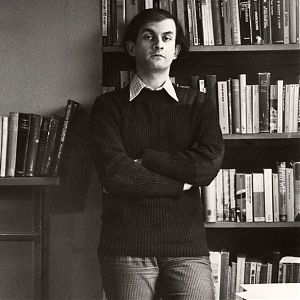
The Rushdie Narrative
Knife and the crumbling ground beneath free speech
There Must Be Some Way Out of Here
An essay on Bob Dylan, “All Along the Watchtower,” and Somali pirate captivity.
That Mystic Shit
The life of Lou Reed in two biographies

Cambodian Seafarers Talk About Pirates
Mike visits Cambodia for The New Yorker to talk about a harrowing shared experience in Somalia
The Muslim Burial
Cambodian hostages remember digging a grave for one of their own. A sequel chapter to The Desert and the Sea
The Real Pirates of the Caribbean
Adventure journalism in Southern California. A travel essay for The Paris Review.

Antifa Dust
An essay on anti-fascism in Europe and the U.S., for the Los Angeles Review of Books
Was Hitler a Man of the Left?
A book that helped Republicans in America lose their damn minds.
Ghosts of Dresden
The Allied firebombing of Dresden in 1945 destroyed the baroque center of what Pfc. Kurt Vonnegut called, in a letter home from Germany, “possibly the world’s most beautiful city.”

George Freeth, Biographed
The first academic treatment of America’s surf pioneer. Also, was Freeth gay?
It’s Called Soccer
Americans live on what amounts to an enormous island, defended on two shores by the sea, and we’ve evolved a few marsupial traditions that nobody else understands.
Tilting at Turbines (in the Severn River)
The morning was clear and cold, with frost on the church steeple and the cemetery grass. I had a quick English breakfast at a white-cloth table, in my wetsuit, and drove to Newnham, a village on the Severn River in Gloucestershire, parking near the White Hart Inn.

The Curse of El Rojo
I’d packed the car lightly — a bag of clothes, a bag of cassette tapes, a backpack of books, a few essential tools.









